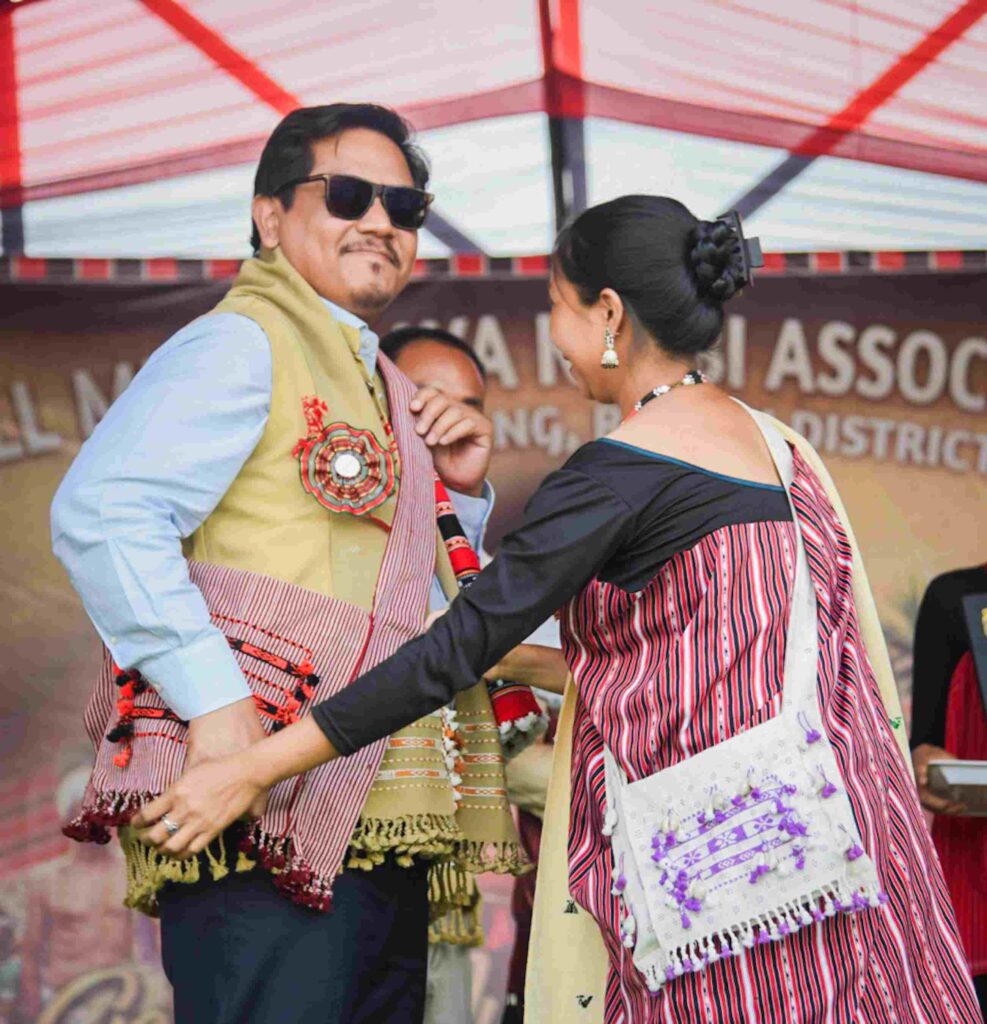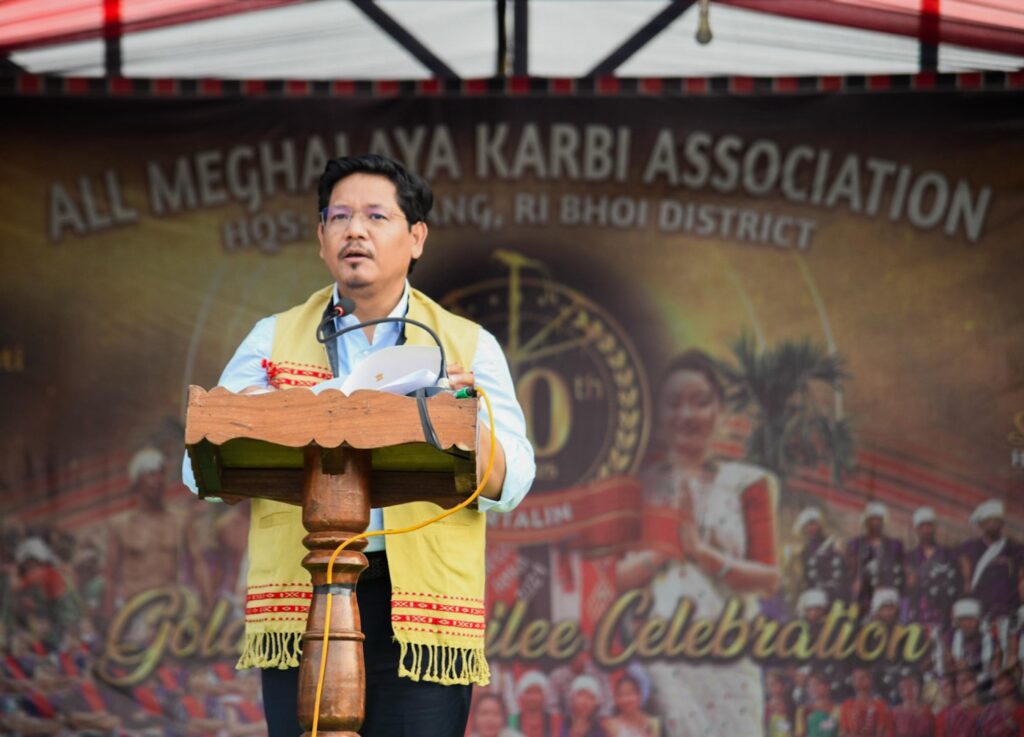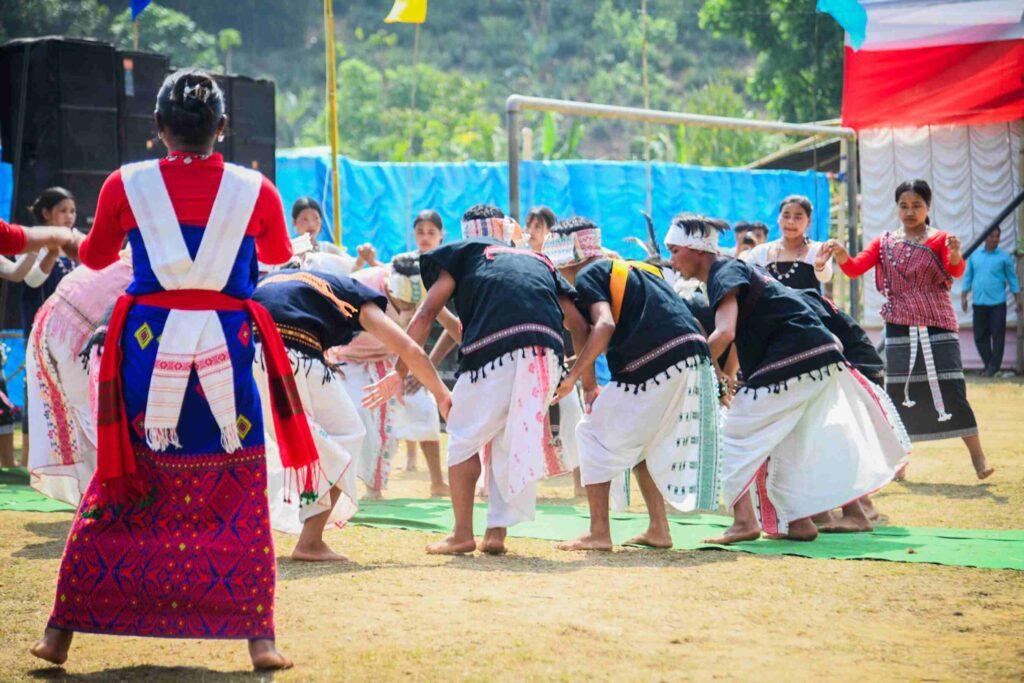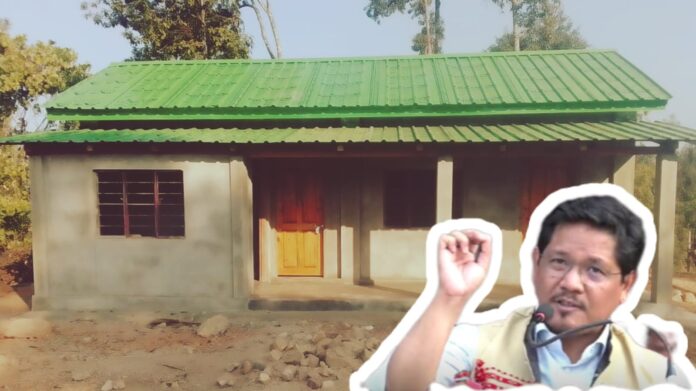Shillong, April 4: For over five decades, people living along the disputed areas of the Assam-Meghalaya border have found themselves caught between two states — not by choice, but by unresolved history. Since Meghalaya’s creation in 1972, 12 areas of difference (of which six area of difference resolved) have remained points of tension, born out of colonial-era administrative lines and unratified boundaries. While work has begun to resolve these areas, years of dispute has meant that the development took a back seat there, where children study under trees instead of classrooms, and where citizens struggle without basic infrastructure due to the political sensitivities of overlapping claims.
Yet, amid these long-standing challenges, a different politics is emerging — one rooted in unity, dialogue, and people-centric governance. Meghalaya Chief Minister Conrad K. Sangma, speaking at the Golden Jubilee celebration of the All Meghalaya Karbi Association (AMKA) at Purduwa Kharpati in Ri Bhoi District, underscored this vision by announcing the construction of a school in one such disputed area, where children have never had access to a proper school building in over 50 years.

“There is an area of difference where there are no schools. Children have to study, sometimes in the open, sometimes in someone’s house, sometimes under a tree. Because of the complications in the border, they never had schools. No building ever in the last 52 years,” he said.
The Chief Minister recounted how with just two phone calls, one to the Karbi Anglong Autonomous Council (KAAC) CEM and another to the Assam government, an agreement was quickly reached to proceed with the school’s construction, supported by Meghalaya Chief Minister’s Special Development Fund (CMSDF).

“We will work together to ensure that those children who have been deprived of a school for so many decades will finally get a school now. And today those schools are being constructed,” he adding that “many areas where five years back, 10 years back, nobody could imagine that the governments would work together, would try to resolve the problem, would give the development that the people deserve, today is being made possible.”
He acknowledged that while challenges remain, the current governments are committed to resolving the differences through dialogue and trust-building. “Challenges are there and will always be there, but the government is working to resolve the issue… I can say that things are moving forward in the right direction. Let us continue, let us continue to be committed to our people. Let us continue to understand the pain that people go through and we can be instrumental in bringing down those tensions and issues to a very large extent while we work towards resolving the border issue and our commitment is there,” he said.

Thanking his Assam counterpart for actively engaging in the process, he said border issue is not a simple issue to resolve, and it’s a political challenge as well apart from being a technical challenge. “And therefore, many governments in the past may not have tried to go into it too much, but we feel it’s our responsibility to do so,” he said.

On the demand raised by AMKA to change the nomenclature of classifying the Karbis, who are currently classified as ‘Mikir’ in the state, he said, “I am aware of the issue regarding the nomenclature. It is a challenge, which has to be taken up at the top level. However, the process has started and we have constituted a committee headed by the Commissioner Secretary of the Social Welfare Department, along with other demands of different minority tribes. The committee will study and recommend, which will have to be taken up with the Government of India”.

On 125th Constitutional Amendment Bill, the demand has been raised for inclusion of unrepresented tribes, to which the chief minister said, “…since the number of nominated members is large, the government will be in a position to expand and figure out if there is a need to include members from the unrepresented tribe. Therefore, the option is not closed.”

On promotion of local language in the education system, the chief minister announced the intention to introduce Khasi and Garo to all students across Meghalaya. “I personally believe that it is important that the students understand words from both the languages. It will be challenging to introduce Khasi for students in Garo Hills and similarly Garo for students in Khasi Hills, but we are exploring the possibility to make both the languages mandatory in schools across the state”, he asserted.
Read: Spear Corps commemorates 111th birth anniversary of Field Marshal Sam Manekshaw
WATCH:
Find latest news from every corner of Northeast India at hubnetwork.in, your online source for breaking news, video coverage.
Also, Follow us on-
Twitter-twitter.com/nemediahub
Youtube channel- www.youtube.com/@NortheastMediaHub2020
Instagram- www.instagram.com/ne_media_hub
Download our app from playstore – Northeast Media Hub



